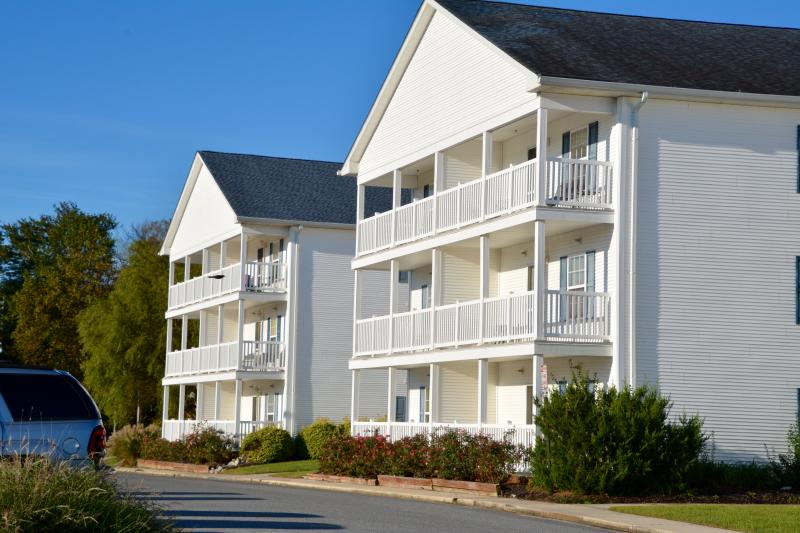Sussex County officials have worked for more than decade to provide incentives to developers to construct affordable housing – especially in the resort area. Their efforts have met with no success.
As a result, more and more Sussex workers who work in eastern Sussex live in western Sussex, where homes are more affordable. That compounds traffic issues, putting more vehicles on roadways.
The housing market in the resort area is fueled by retirees from other states who can afford higher-priced homes. One local developer says 95 percent of the single-family homes his company sells are to retirees.
On the recommendation of county housing staff, Sussex County may hire experts to tackle the affordable housing problem.
At its Oct. 23 meeting, county council unanimously voted to seek bids for consultants specializing in affordable housing to assist with evaluating existing programs and offering recommendations for changes or new programs.
Brandy Nauman, housing coordinator and fair housing compliance officer, said county officials and the public provided significant feedback on affordable housing during 2018 county comprehensive land-use plan public hearings and workshops.
“We have no active applications. We need significant updates to our programs,” she said.
She said statistics speak for themselves. “Home ownership is out of reach for many of those in the workforce,” she said.
The Sussex County median house price in 2016 was $295,000, which is driven by higher home prices in the resort area where homes typically sell for $400,000 to $600,000 or more, depending on location.
Rents are also high. A Sussex resident would need to make $17.60 an hour to afford a typical two-bedroom apartment.
The largest number of jobs in the resort area are in retail, leisure and hospitality, which have the lowest wages. For example, the average hourly pay for a retail worker in Sussex is $12.84.
Nauman said timing is perfect to refine the county's affordable housing programs to take advantage of a booming housing industry.
To date, no developers have participated in the county's affordable housing programs.
Sussex County enacted its voluntary moderately priced housing unit program in 2006. Nauman said six developers initially applied for the program, but then the housing market collapsed and the projects did not develop.
The county enacted an affordable rental unit program in 2008. Both programs offer developers extra units, or density bonus, and expedited review during the land-use process as incentives.
Opposition to multifamily housing
At the same meeting, the discussion on affordable housing continued during a public hearing on the comprehensive plan. Developer Preston Schell of Rehoboth Beach commended county officials on language in the housing chapter of the plan. “But I’m worried how it will work in real life,” he said.
He said his company sells about 500 homes a year at $600,000, and 95 percent of buyers are not from the area.
Schell said developers already face opposition with most applications. He said if the application included rezoning for multifamily workforce or affordable housing, most residents in nearby communities would be opposed. He said even following county regulations and zoning requirements, residents would still object.
He said a solution would be to have a provision for by-right development – such as AR-1 zoning – for medium- or high-density zoning for multifamily housing, which could be affordable housing units.
Schell said the county has not used a strong enough carrot to attract developers. In addition, the current market is strong for single-family homes.
Council reacts to recommendation
“We are leaving our residents behind. Vacationers and second-home buyers are driving the market, and local families are struggling for housing,” said Councilman Rob Arlett, R-Frankford.
Councilman George Cole, R-Ocean View, said staff should look at what other jurisdictions do. “And maybe not spend so much money,” he said.
He said successful programs mandate a certain percentage of affordable housing to be included in projects, but Sussex County's programs are voluntary.
“We’e been running around chasing a rabbit and getting nowhere with cute little programs that don’t work,” Cole said. “I know we don’t like to require things in Sussex County, but that may be what we need in Sussex County.”
I.G. Burton, R-Lewes, said he agreed consultants should be hired, but the process needs to be completed as quickly as possible.
County Administrator Todd Lawson said staff will continue to work on the issue, and once bids are received through the request for proposal process, it will be up to council to decide to hire consultants.
Sussex housing program provides a lifeline
Sussex County has a successful program to help homeowners stay in their houses.
Although most of the work is done behind the scenes, Sussex County staff administer a housing rehabilitation program that provides a lifeline to residents who may be in danger of losing their homes because they lack funds to make repairs.
Through the Sussex County Community Block Grant program, Sussex Community Development and Housing staff use U.S. Department of Housing and Urban Development and Home Investment Partnerships funds doled out to Sussex and Kent counties by Delaware State Housing Authority.
“The goal is to maintain the county's housing stock to ensure it's liveable in the future,” said Sussex County Director of Community Development and Housing Brad Whaley.
Over the past five years, the program has used $7.4 million to assist with rehabilitation, demolition, and sewer and water connections for nearly 860 houses and more than 1,400 residents in unincorporated areas as well as towns throughout the county. Last year, the county received $1.5 million and assisted 135 low- to moderate-income households.
Even so, there is a waiting list of more than 900 residents.
Sussex County Council also provides $175,000 in emergency funding that can be used for repairs as deemed necessary by county housing staff. Whaley said funds can be used to assist households with no running water or no heat, to provide handicapped accessibility, to fix leaking roofs, and to assist with emergency electrical and plumbing issues.
























































